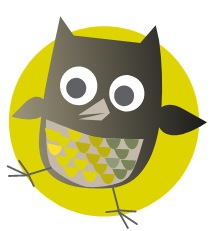Although many of us enjoy sitting down to enjoy a story with our children, we’re probably less likely to pluck a non-fiction book off the shelf. But we read non-fiction all the time – on news websites, in magazines, in charming educational blogs – and there are lots of great reasons to share factual books with your child.
With the launch of Read with Oxford’s first non-fiction early readers, we thought we’d take the opportunity to explore how you can develop your child’s reading and language skills with non-fiction.
1. Check what your child already knows
Before your child begins reading a non-fiction book, look at the contents page together. What does your child think it will be about? Have they heard (or read) anything about the topic before?
Talk about your child’s ideas, and prompt their memory of anything they already know about the topic. Read with Oxford non-fiction collections have a page of notes and ‘before reading’ suggestions at the start of each text, too – going through these together is a great way to introduce the topic and engage your child’s interest before you start reading.
2. Talk about the layout of non-fiction
Ask your child to show you some of the non-fiction features in the text – for example, the contents page, glossary, index, photos, labels and fact boxes.
Make sure your child understands what all these parts of the book are before you read. Can they tell you how to use the contents page or the index to find their way around? Can they point out some new words in the glossary?
3. Ask your child to read the text aloud
Having your child read aloud helps you to see how well they understand their book. It also allows you to support them if they’re finding a word tricky.
If your child is struggling with a word, remind them to say the sounds from left to right and then blend the sounds together, e.g. v-a-m-p-ire, vampire. If they have real difficulty, don’t get stuck – tell them the word and move on.
With non-fiction, it’s also important to stop occasionally to take in the pictures. Wonderful, wild, weird and wacky pictures can be a great motivator, as your child will want to read on to find out more about them.
4. Talk about what you’ve just read
When your child has finished reading, talk about what they have found out. Which bits did they like best? Why? Ask if there is anything they still want to find out. Then, you can find a new book about that and begin the process all over again!
That’s the best bit about non-fiction – there’s always more to discover, and with the right book your child can explore as far and wide as they like.
Free activities
‘Colour Codes’ eBook from Incredible Animals
From the Incredible Animals collection, our free eBook ‘Colour Codes’ looks at all the different ways that animals and plants use colour.
The book features dazzling facts, vibrant pictures and lots of interactive activities. Why not read it now for free?
Crack the Code [PDF]
Can you crack the code? See if you can figure out how all these different animals and plants use colour. Do they want to be seen? Are they hiding from predators? Or are they hunting?
If you need some help, read the free ‘Colour Codes’ eBook to learn more about colours in nature first!
Wild Wordsearch [PDF]
See if you can find all eight animals hiding in this wordsearch. Be warned – some of these creatures are masters of disguise!
Read the free ‘Colour Codes’ eBook to find out more about these colourful critters.
Books
Please note: all book links lead to more information on Amazon.co.uk
Our Wonderful World
Find out about exotic plants, explore beautiful beaches and see the world through an animal’s eyes!
Explore our wonderful world in this fascinating collection of seven Read with Oxford non-fiction texts, ideal for children who are developing early reading skills.
Fantastic Nature
Find out about stinky flowers and giant trees, discover the amazing ways creatures use tricks to hide or find food, and sort fact from fiction in the animal quiz!
Explore the fantastic nature all around you in this fascinating collection of six Read with Oxford non-fiction texts, ideal for children who are growing in reading confidence.
Incredible Animals
Find out about some weird and wonderful insects, meet the class that have their own tiger and discover the amazing creatures that live in the deep, dark ocean!
Discover some of the incredible animals that we share our world with in this fascinating collection of six Read with Oxford non-fiction texts, ideal for children who are gaining more reading confidence.
Explore and Invent
Find out about the incredible invention of the flying machine, discover how people have spread the word throughout history and learn all about the solar system!
Explore outer space and discover amazing inventions in this fascinating collection of five Read with Oxford non-fiction texts, ideal for children who are beginning to read independently.
More from Oxford Owl
- Website: Read with Oxford books and activities
- YouTube video: Supporting your child’s reading









